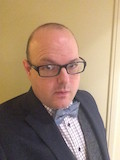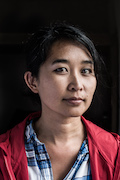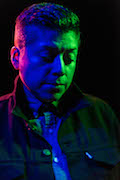|
|
Wendy C. Ortiz is the author of three books: the critically acclaimed Excavation: A Memoir (2014); Hollywood Notebook (2015); and the dreamoir Bruja (2016). In 2016 Bustle named her one of “9 Women Writers Who Are Breaking New Nonfiction Territory.” Wendy’s work has been profiled or featured in the Los Angeles Times, Poets & Writers Magazine, Los Angeles Magazine, The Rumpus, Los Angeles Review of Books, and the National Book Critics Circle Small Press Spotlight blog. Individual pieces have appeared in The New York Times, Hazlitt, StoryQuarterly, Joyland, and a year-long series on medical marijuana pharmacy cultures of Southern California was featured at McSweeney’s Internet Tendency. Wendy lives in Los Angeles, where she is a parent and a psychotherapist in private practice.
Short aesthetic/personal statement:
To describe my aesthetic is to describe only the aesthetic I claim today (these things change, I’m in favor of the ever-changing). At the moment my aesthetic feels tethered to the troubling of narratives, identifying best ways of enclosing the most emotional information in the fewest lines possible, the exploration of parallel lives in narratives, finding what scares me most and pushing in that direction for the benefit of the writing, finding comfort in the uncomfortable, addressing and attempting to write toward the liminal, gravitation toward work that remembers the body, work that forces me to be in my body to read it, and always, always, in my own work, a return to the body, the body, the body.
|







